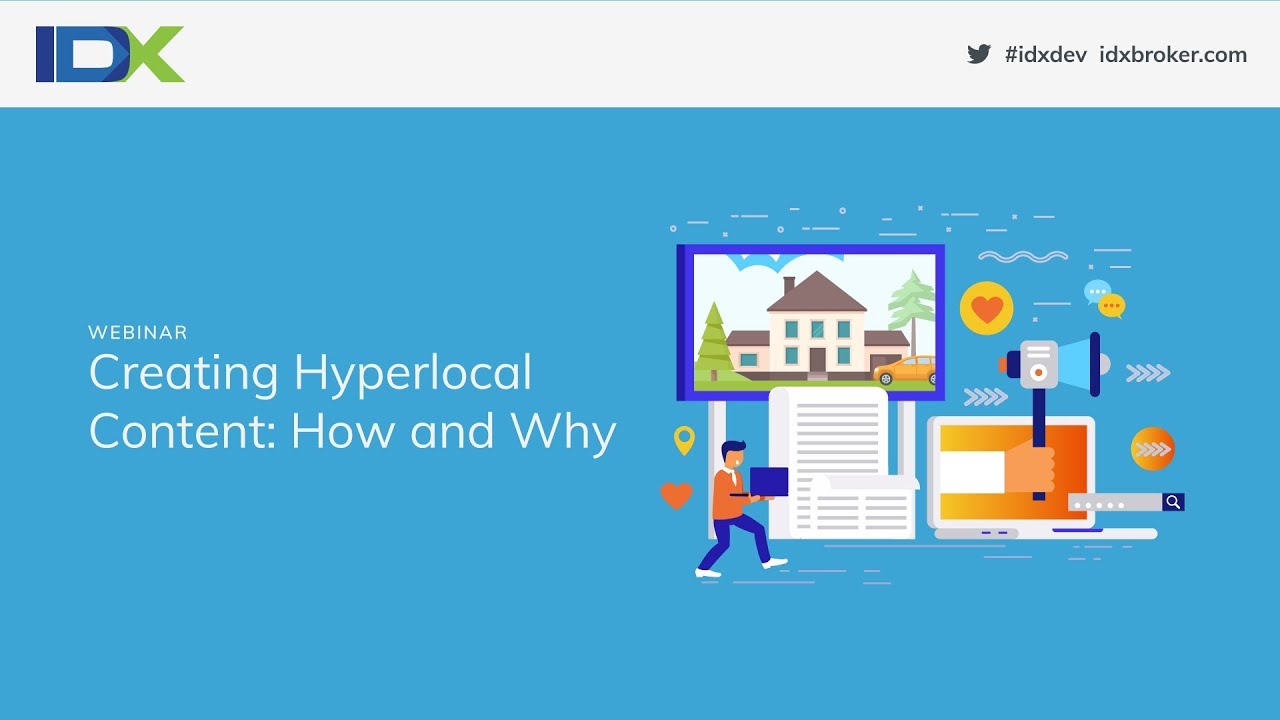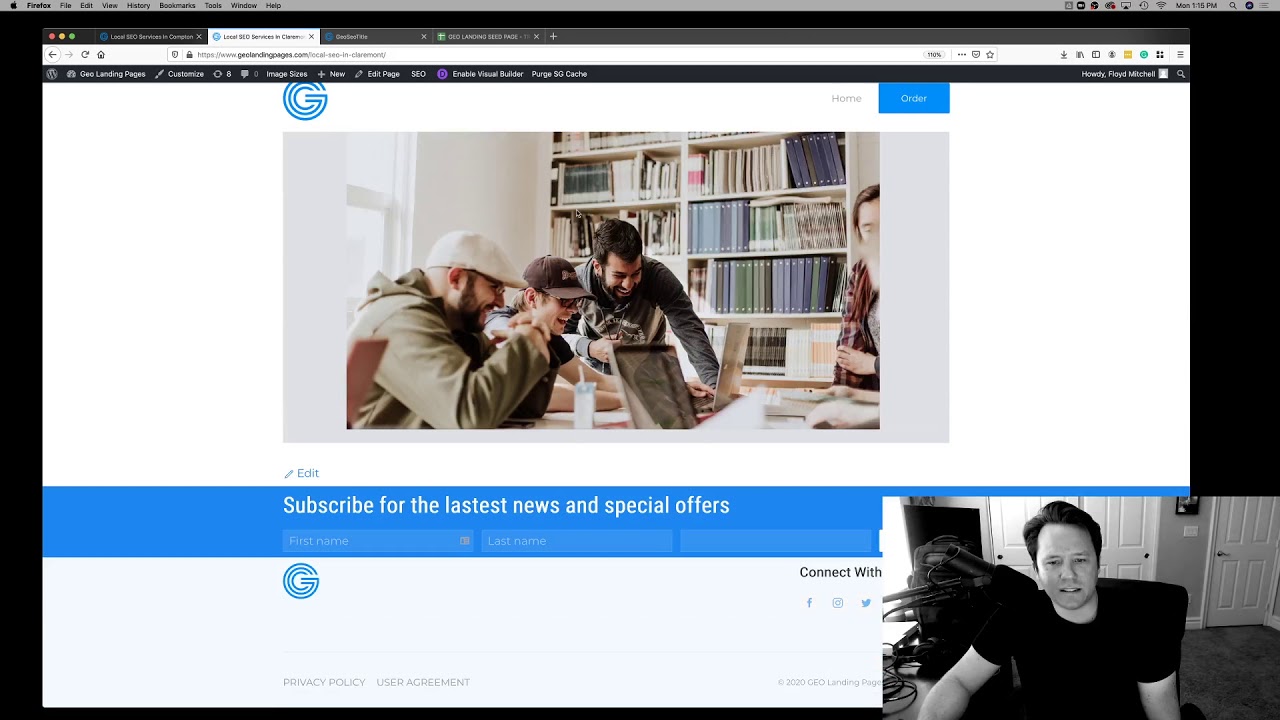In the competitive world of local business, having a strong online presence is crucial for attracting local customers. While traditional SEOstrategies are effective, incorporating guerrilla tactics into your local SEOefforts can give you an edge over your competitors. Local SEO Guerrilla tacticsare unconventional, creative, and effective ways to boost your local search rankings and attract more customers in your area. In this article, we will explore some powerful guerrilla tactics that can supercharge your local SEOgame.
What Is Local SEO?

What is Local SEO?
Local SEO, or local search engine optimization, refers to the process of optimizing a website or online presence to improve its visibility in local search results. It focuses on attracting customers from a specific geographical area, such as a city or region, and driving traffic to a physical location or serving customers within that area.
Local SEO involves various strategies and techniques to help businesses rank higher in local search engineresults pages (SERPs) and increase their chances of being found by local customers when they search for relevant products or services. These strategies include optimizing the website's content, meta tags, and headings with local keywords, creating and optimizing a Google My Businesslisting, building citations and backlinksfrom local sources, and managing online reviews to enhance reputation and credibility.
Local SEO is crucial for businesses with a physical presence or those targeting customers in specific geographic areas, as it helps them connect with local audiences and stand out among competitors in their locality.
Why Local SEO Is Important?

Why Is Local SEO Important? | Lesson 28/31 | SEMrush Academy
Local SEO is important for several reasons:
- Targeting Local Customers -Local SEO allows businesses to reach and attract customers within their specific geographic area. By optimizing their online presence for local search, businesses can connect with local audiences who are more likely to visit their physical locations or use their services. This targeted approach helps businesses maximize their marketing efforts and focus on the customers who are most likely to convert.
- Increased Visibility in Local Search Results -When potential customers search for products or services in their local area, search engines prioritize relevant local results. By implementing local SEO strategies, businesses can improve their visibility in local search engine results pages (SERPs). This increased visibility enhances their chances of being found by local customers and increases the likelihood of website visits, foot traffic, and conversions.
- Competitive Advantage -Local SEO provides a competitive edge, particularly for businesses operating in a specific geographical area. By optimizing their online presence and appearing prominently in local search results, businesses can outshine competitors and capture a larger share of the local market. Local SEO tactics, such as optimizing Google My Business listings and earning positive reviews, help businesses build trust and credibility, further differentiating them from competitors.
- Mobile and Voice Search Optimization -With the rise of mobile devices and voice search, local SEO has become even more crucial. Many local searches are performed on smartphones or through voice assistants, and search engines prioritize local results in these instances. By optimizing for local SEO, businesses can ensure they appear in mobile and voice search results, capturing the attention of on-the-go consumers who are actively looking for local products or services.
- Online-to-Offline Conversions -Local SEO is particularly beneficial for businesses with physical locations, such as retail stores, restaurants, or service providers. By improving their local search visibility, businesses can drive more foot traffic to their physical stores, increase local phone inquiries, and generate online-to-offline conversions. Local SEO tactics, such as accurate business information, customer reviews, and directions, make it easier for potential customers to find and choose a business when they are ready to make a purchase or seek services locally.
Local SEO Guerrilla Tactics
Hyperlocal Content Creation

Creating Hyperlocal Content: How and Why
Instead of competing for broad keywords, focus on creating hyperlocal content that caters to the specific needs and interests of your local audience. Develop blog posts, articles, and resources that address local events, news, and trends. By providing valuable, location-specific content, you can attract local traffic and establish yourself as a trusted resource in your community.
- Research Local Topics -Understand the unique needs, interests, and concerns of your local audience. Conduct thorough research on local trends, events, news, and issues that are relevant to your industry. This will help you identify specific topics to create content around.
- Location-Specific Keywords -Incorporate local keywords into your content to optimize it for local search. Include the name of your city, neighborhood, or region in your titles, headings, and throughout the body of your content. This will help search engines understand the local relevance of your content and improve its visibility in local search results.
- Address Local Challenges and Solutions -Identify specific challenges or pain points faced by your local audience and address them in your content. Offer practical solutions, tips, or insights that are tailored to your local community. By providing valuable, localized information, you position yourself as an authority and resource in your area.
- Highlight Local Success Stories -Share success stories of customers or clients from your local area. Showcase how your products or services have made a positive impact on their lives or businesses. This not only provides social proof but also fosters a sense of trust and connection with your local audience.
- Collaborate with Local Influencersor Experts -Partner with influential individuals or experts in your local community to co-create content. This could involve interviews, guest blog posts, or collaborative projects. By leveraging their local credibility and audience, you can increase the reach and impact of your hyperlocal content.
- Promote Local Events and Causes -Keep your audience informed about local events, community initiatives, or charitable causes that align with your business values. Create content that highlights these events, provides useful information, or encourages participation. This demonstrates your involvement and commitment to the local community.
- Engage with Local Feedback -Pay attention to comments, feedback, and questions from your local audience on your content. Respond promptly and engage in meaningful conversations. This fosters a sense of community and encourages further interaction and loyalty.
Geo-Targeted Landing Pages

The Power of Geo Landing Pages
Create dedicated landing pages for each location you serve or each specific area within your target market. Optimize these pages with relevant local keywords, business information, and testimonials specific to that location. By tailoring your landing pages to specific geographic areas, you can improve your local search visibility and attract customers searching for businesses in those specific locations.
- Identify Target Locations -Determine the specific locations you want to target, whether it's different cities, neighborhoods, or regions. Research the local search behavior and preferences of users in those areas to understand their needs and interests better.
- Optimize Content with Local Keywords -Incorporate relevant local keywords into the content of each landing page. Include location-specific terms, phrases, and long-tail keywords that users in those areas are likely to search for. This helps search engines understand the local relevance of your landing pages and improves their visibility in local search results.
- Customize Business Information -Customize the business information on each landing page to reflect the specific location. This includes the name, address, phone number (NAP), and other contact details. Ensure that this information is consistent with the local business directory listings and Google My Business page.
- Highlight Local Testimonials and Case Studies- Showcase testimonials and case studies from satisfied customers in the targeted location. This adds a local flavor and builds trust among users in that area. People are more likely to engage with businesses that have a positive reputation and track record in their specific location.
- Include Localized Call-to-Actions (CTAs) -Customize the call-to-action buttons and links on your landing pages to align with the targeted location. Use localized CTAs that encourage users to take action specific to their area, such as "Visit our [City] Store" or "Get a Quote for [Neighborhood]."
- Embed Local Maps and Directions -Incorporate maps and directions on your landing pages to make it easy for users to find your business location. Embed interactive maps or provide clear instructions with landmarks for easier navigation. This helps users in the targeted location visualize the proximity of your business to their area.
- Optimize Meta Tags and Page Titles -Pay attention to the meta tags, page titles, and headings on your geo-targeted landing pages. Include location-specific keywords and make them compelling to attract users from the targeted location. These elements are essential for search engines to understand the content of your landing pages and rank them appropriately in local search results.
Guerrilla Link Building
Take a proactive approach to building local links by seeking out opportunities with local businesses, organizations, and influencers. Collaborate on projects, sponsor local events, or offer guest blogging opportunities to earn backlinks from reputable local sources. These local backlinks will not only improve your local search rankings but also enhance your authority and credibility in the eyes of search engines.
- Local Partnerships and Sponsorships -Forge partnerships with local businesses, organizations, or events that align with your industry or target audience. Collaborate on projects, sponsor local events, or offer discounts or exclusive deals to their customers. In return, request a backlink from their website, social mediamentions, or co-marketing opportunities. These local collaborations not only help you earn relevant backlinks but also increase your visibility within the local community.
- Resource and Scholarship Pages -Identify educational institutions, local websites, or community organizations that have resource or scholarship pages. Reach out to them and offer valuable content, such as informative guides, research papers, or expert insights, that can be featured on their resource pages. In return, request a backlink to your website as the source of the content. This tactic not only earns you backlinks but also positions you as an authority in your industry.
- Interviews and Guest Blogging -Seek opportunities to be interviewed or contribute guest blog posts to local websites, industry publications, or blogs with a local focus. Offer unique insights, share success stories, or provide expert advice. By showcasing your expertise and knowledge, you can earn valuable backlinks and expand your reach to the local audience of those websites.
- Community Involvement and Sponsorships -Engage in community activities and sponsor local initiatives or events. This can include supporting charities, local sports teams, or community organizations. As part of the sponsorship or involvement, request a backlink from their website or acknowledgment in their promotional materials. This helps you build relationships within the community while earning relevant backlinks.
- Utilize Local Directories and Listings -Submit your business to relevant local directories, industry-specific listing websites, and local chambers of commerce. These platforms often provide opportunities to include your website link in your business profile. Ensure that your business information is accurate and consistent across all directories to maximize the impact of these backlinks.
- Social Media Engagement and Influencer Collaboration -Leverage social media platforms to engage with local influencers, bloggers, or community leaders. Collaborate on content, conduct interviews, or offer to write guest posts for their blogs or social media channels. This not only helps you reach their followers but also earns you backlinks and social media mentions.
Online Reputation Management

What is Online Reputation Management - Explained [2021]
Manage and leverage online reviews strategically to boost your local SEO efforts. Encourage satisfied customers to leave reviews on platforms like Google, Yelp, and industry-specific review sites. Respond promptly and professionally to both positive and negative reviews. By actively managing your online reputation, you can improve your business's credibility, attract more customers, and enhance your local search rankings.
- Monitor Online Reviews -Regularly monitor online review platforms such as Google My Business, Yelp, TripAdvisor, and industry-specific review sites. Respond promptly and professionally to both positive and negative reviews. Express gratitude for positive feedback and address any concerns or issues raised in negative reviews. This demonstrates your commitment to customer satisfaction and shows potential customers that you value their feedback.
- Encourage Positive Reviews -Actively encourage satisfied customers to leave reviews on platforms like Google My Business, Yelp, and other relevant review sites. This can be done through follow-up emails, post-purchase requests, or by placing review reminders on your website. Positive reviews not only improve your online reputation but also serve as social proof to potential customers.
- Address Negative Reviews -Handle negative reviews carefully and professionally. Respond promptly and empathetically, addressing the specific concerns raised. Offer a resolution or propose taking the conversation offline to address the issue privately. This shows potential customers that you are committed to resolving problems and maintaining high standards of customer service.
- Engage on Social Media -Actively engage with your audience on social media platforms. Respond to comments, messages, and mentions promptly and in a helpful manner. Share relevant content, and updates, and respond to customer inquiries. This active engagement demonstrates your accessibility and responsiveness, further enhancing your online reputation.
- Leverage User-Generated Content -Encourage customers to share their experiences through user-generated content such as testimonials, photos, or videos. Showcase this content on your website, social media platforms, and other marketing channels. User-generated content adds authenticity and credibility to your brand, strengthening your online reputation.
- Address Customer Feedback -Take customer feedback seriously and make necessary improvements to your products, services, or business processes. Actively communicate with customers, seek their input, and show them that their feedback is valued. By addressing customer feedback, you can enhance your offerings and demonstrate your commitment to continuous improvement.
- Monitor Online Mentions -Monitor online mentions of your brand, products, or services using tools like Google Alerts or social media monitoring platforms. Respond or engage with mentions positively and promptly, whether they are positive or negative. This proactive approach helps you manage your online reputation beyond review platforms.
Local Business Directories Optimization

Improve Local SEO With These 5 Business Listings You Must Be Listed On
Optimize your presence on local business directories by ensuring accurate and consistent business information across platforms. Submit your business to relevant directories specific to your industry and locality.
Maximize your visibility by including keywords, detailed descriptions, and high-quality images. These directory listings will not only provide valuable citations but also enhance your local SEO rankings and make it easier for potential customers to find you.
- Consistent Business Information -Ensure that your business information, including your business name, address, phone number (NAP), and website URL, is consistent across all directories. Inconsistencies in your business information can confuse search engines and potential customers. Use the same format, spelling, and punctuation for your business details.
- Complete and Accurate Profiles -Fill out your profiles on local business directories completely and accurately. Provide detailed descriptions of your business, products, and services. Include relevant keywords that describe your business and target local search terms. Add high-quality images and videos to enhance your listing's visual appeal.
- Choose Relevant Categories -Select the most relevant categories and subcategories for your business in each directory. This helps search engines understand your business's nature and ensures that your listing appears in the appropriate search results. Choose categories that accurately represent your industry, products, or services.
- Optimize Titles and Descriptions -Optimize the titles and descriptions of your business listings with local keywords. Incorporate location-specific terms, such as your city, neighborhood, or region, to improve your visibility in local search results. Craft compelling and concise descriptions that highlight your unique selling points and encourage potential customers to choose your business.
- Collect and Showcase Reviews -Encourage satisfied customers to leave reviews on local business directories. Positive reviews can significantly impact your online reputation and attract new customers. Monitor and respond to reviews promptly, addressing both positive and negative feedback. Engage with reviewers to show your appreciation and dedication to customer satisfaction.
- Leverage Additional Features -Many local business directories offer additional features to enhance your listing's visibility and appeal. Take advantage of these features, such as adding special offers, menus, service lists, or appointment scheduling. Utilize these tools to provide more value to potential customers and stand out from competitors.
- Regularly Update Information -Keep your business information up to date on local directories. Update your listings whenever there are changes to your business name, address, phone number, website URL, or other relevant details. This ensures that potential customers get accurate information and avoids confusion or frustration.
- Submit to Relevant Directories -Identify and submit your business to relevant local business directories specific to your industry, region, or target audience. Look for directories that cater to your niche or are popular among your target customers. Focus on quality over quantity, prioritizing directories that have a strong online presence and high domain authority.
People Also Ask
Does Local SEO Work For Small Businesses?
Absolutely! Local SEO is particularly beneficial for small businesses as it allows them to compete with larger competitors on a local level. By targeting relevant keywords and optimizing their online presence, small businesses can attract local customers and increase their visibility in search results.
What Are Some Common Mistakes To Avoid In Local SEO?
Some common mistakes to avoid in local SEO include inconsistent business information across online directories, neglecting customer reviews, ignoring mobile optimization, and failing to target relevant local keywords.
How Long Does It Take To See Results From Local SEO Efforts?
The timeline for seeing results from local SEO efforts can vary based on various factors such as the competitiveness of the industry, the quality of optimization, and the consistency of efforts. Generally, it can take a few weeks to a few months to see noticeable improvements in local search rankings.
Conclusion
Local SEO is a critical aspect of any business's marketing strategy, especially for those aiming to target customers within their geographical area. While traditional SEO techniques are effective, employing local SEO guerrilla tactics can provide you with a competitive advantage and help you stand out in the local search results. So, don't be afraid to think outside the box and implement these guerrilla tactics to dominate the local search landscape and drive success for your business.
